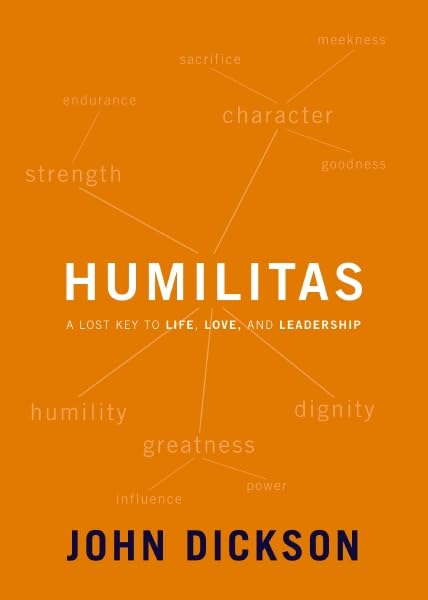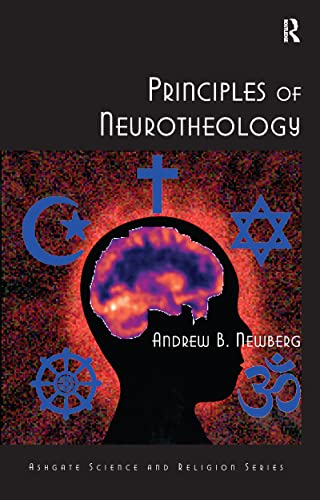Humilitas: A Lost Key to Life, Love, and Leadership
Written by John Dickson Reviewed By Andrew David NaselliThis book surprised me. It isn't at all what I expected. Judging by the title, subtitle, author, and publisher, I thought that the book would intellectually unpack what the Bible says about humility and apply it to all of life, including leadership—like a more academic version of C. J. Mahaney's Humility: True Greatness (Sisters, OR: Multnomah, 2005). Zondervan is a leading evangelical publisher, and John Dickson, who has written several other evangelical books published by Zondervan, is founding Director of the Centre for Public Christianity in Sydney, Australia, where he serves as an Anglican minister.
But this isn't really an evangelical book or even a Christian one. It's not even a religious one. It's a good book; it's written by a Christian man; and it's published by an evangelical publisher. But it's not a Christian book.
That's not necessarily a negative critique. I mention it merely to orient readers to what sort of book this is. We should review a book on its own terms, so we must begin by understanding what sort of book the author intended to write. Dickson nowhere promises that this is a Christian book that explains what the Bible teaches about humility. Rather, he approaches the subject from the perspective of an ancient historian examining humility in Western ethical thought, and his thesis is simple and pragmatic: “The most influential and inspiring people are often marked by humility” (p. 19). This is a book on leadership. It argues why and how humility enhances leadership. Humility is a virtue that we should love for “its aesthetic qualities and its practical benefits” (p. 14).
Humilitas could be written by a non-religious person. When Dickson discusses Jesus of Nazareth or quotes passages from the Bible, he treats them with the same respect and historical care that he treats Mahatma Gandhi or the writings of the Roman Emperor Augustus. He doesn't elevate the former over the latter in any way. He sifts the evidence as objectively as he can, wearing not his theologian's hat but only his historian's hat (p. 102). This is the same way he teaches a course on Christian origins at Macquarie University (where he earned his PhD in ancient history and now teaches as a senior research fellow in the Department of Ancient History).
Dickson defines humility as “the noble choice to forgo your status, deploy your resources or use your influence for the good of others before yourself” (p. 24), and he defines leadership as “the art of inspiring others in a team to contribute their best toward a goal” (p. 33). While humility does not automatically make someone a great leader, it “enhances the ordinary and makes the great even greater” (p. 29). Humility “has often marked the most influential and inspiring people in history, whether religious figures like Buddha and Jesus, social activists like William Wilberforce, Mahatma Gandhi and Nelson Mandela, or some of the 'most remarkable CEO's of the century' detailed in Jim Collins's research” (p. 28). The heart of leadership is not ability or authority but persuasion and example. Again, think of people like Jesus of Nazareth, Mahatma Gandhi, Elizabeth Cady Stanton, Martin Luther King, Nelson Mandela, or Desmond Tutu (pp. 43-45).
No one can be an expert at everything, so humility is common sense (pp. 51-66). It's also aesthetically beautiful (pp. 69-82). The ancient world disliked it because it did not fit their honor-shame paradigm (pp. 85-95), but our Western culture doesn't use that paradigm because Jesus of Nazareth redefined greatness (pp. 99-112). Humility has many benefits for leaders, enhancing one's ability to persuade and inspire others (pp. 115-59). Dickson closes by expounding six thoughts on how to cultivate humility (pp. 173-83):
- We are shaped by what we love.
- Reflect on the lives of the humble.
- Conduct thought experiments to enhance humility.
- Act humbly.
- Invite criticism.
- Forget about being humble.
Humilitas is an engaging little book that convincingly proves its thesis on its own terms with wit and verve. I think it is less edifying to approach the topic of humility in a purely historical and pragmatic way without being theological or Christian at all; even more problematic, it may encourage some people to continue in their godless moralism. But that does not mean that there is no place for books like this, for we can learn a lot from them. Further, Humilitas could be an excellent conversation-starter with some non-Christians (particularly the type who read books on leadership), who might then be more inclined to read Dickson's more evangelistic and theological books.
Andrew David Naselli
Andy Naselli is assistant professor of New Testament and Biblical Theology at Bethlehem College and Seminary in Minneapolis and administrator of Themelios.
Other Articles in this Issue
Evaluating a new English translation of the Bible can be extremely difficult...
In the November 2009 edition of Themelios, Dane C...
Jonathan Edwards (1703-1758) is remembered today as a saint, scholar, preacher, pastor, metaphysician, revival leader, theologian, Calvinist—the list goes on...
Almost two decades ago I wrote an essay titled " When Is Spirituality Spiritual? Reflections on Some Problems of Definition ...
He was the youngest son of elderly parents. His childhood was secluded and unhappy, which might in some measure account for his lifelong melancholy...






